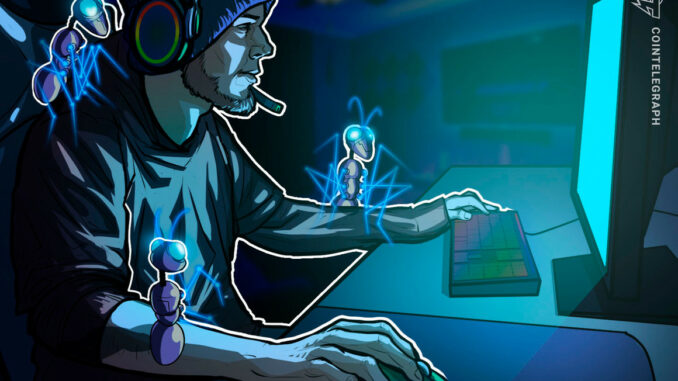
While game developers seem to hate the idea of Web3 coming into games, players who compete in gaming tournaments for a living are more open to trying out blockchain gaming.
Professional Dota 2 player Erik Engel for Gaimin Gladiators, more commonly known by his gamer tag “Tofu,” expressed his thoughts on Web3 and how it can help gamers in a statement sent to Cointelegraph.
Engel, who has won over $400,000from various major tournaments in the Dota 2 competitive gaming scene, said it’s refreshing to see companies make “more out of games than just games.” He explained:
“The idea of blockchain gaming is still a new and expanding topic for most of us, and it’s something I want to explore more in the future. If it’ll improve gaming and make it even more rewarding, then that’s definitely something to look out for in times ahead.”
In addition, Engel believes that Web3 has features that “genuinely feel beneficial to the player” and expressed that he’s excited to see what companies come up with in the future.
Rocket League professional gamer Max Ng, known by his gamer tag “Maxeew,” also echoed Engel’s sentiments. According to Ng, he really liked the idea of games being developed differently. He said:
“The idea behind adding new technology and features is something that pretty much any game can benefit from, especially when it is something that can reward the users’ time and expenditure on the game itself.”
Ng said that while he’s already looked into blockchain-based games, he has never tried them personally. However, the gamer said that he’ll start to get into it once the busy competitive gaming season ends.

Meanwhile, Joseph Turner, the co-founder of Gaimin Gladiators — the organization to which Engel and Ng belong — said that the initial advent of Web3 games built within the decentralized finance space “spooked many major publishers.”
In 2021, Valve Corporation — the developers of popular video game titles like Dota 2 and Half-Life — removed blockchain-based games from its gaming marketplace, Steam. The company updated its guidelines to disallow games that issue cryptocurrencies or nonfungible tokens.
Turner described Valve as an “extremely traditional” gaming company and said the firm would not be diving into Web3 like other companies did. Despite this, Turner believes that the tide will change. “Although I understand why Valve made the statements they did, I feel their position will change rapidly over time,” he said.
Apart from integrating Web3 with games, the gaming organization executive encouraged blockchain projects to be involved in the professional gaming scene. “I strongly believe that the Web3 world should directly engage the competitive gaming industry,” Turner added.
Related: Gamers are more interested in earning Bitcoin than NFTs: Survey
Walter Lee, partner growth and GameFi leader at BNB Chain — which started penetrating the competitive gaming landscape through a partnership with Gaimin Gladiators — said that Web3 and blockchain technology could empower traditional gaming ecosystems.
From the tokenization of in-game assets to other use cases, such as an on-chain verifiable random number generation mechanism, Lee believes that “the potential is huge.“ In addition, the executive also believes that because of the speed of the growth of Web3 gaming, it will one day simply be called gaming.
The executive also highlighted that Web3 offers many opportunities for professional gamers as well. He explained:
“There is a surge of many interesting upcoming games from various new studios. Some of these titles may potentially gain massive popularity and generate new exciting esports leagues for the industry.”
Lee believes that gamers can also build their brand and revenue streams in Web3: “Players will be able to sustain and build in the industry with lesser reliance on an esports firm; this balances the demand between esports firms and players,” he said.
Magazine: Web3 Gamer: Shrapnel wows at GDC, Undead Blocks hot take, Second Trip





 Bitcoin
Bitcoin  Ethereum
Ethereum  Tether
Tether  XRP
XRP  USDC
USDC  Lido Staked Ether
Lido Staked Ether  TRON
TRON  Dogecoin
Dogecoin  Cardano
Cardano
Be the first to comment